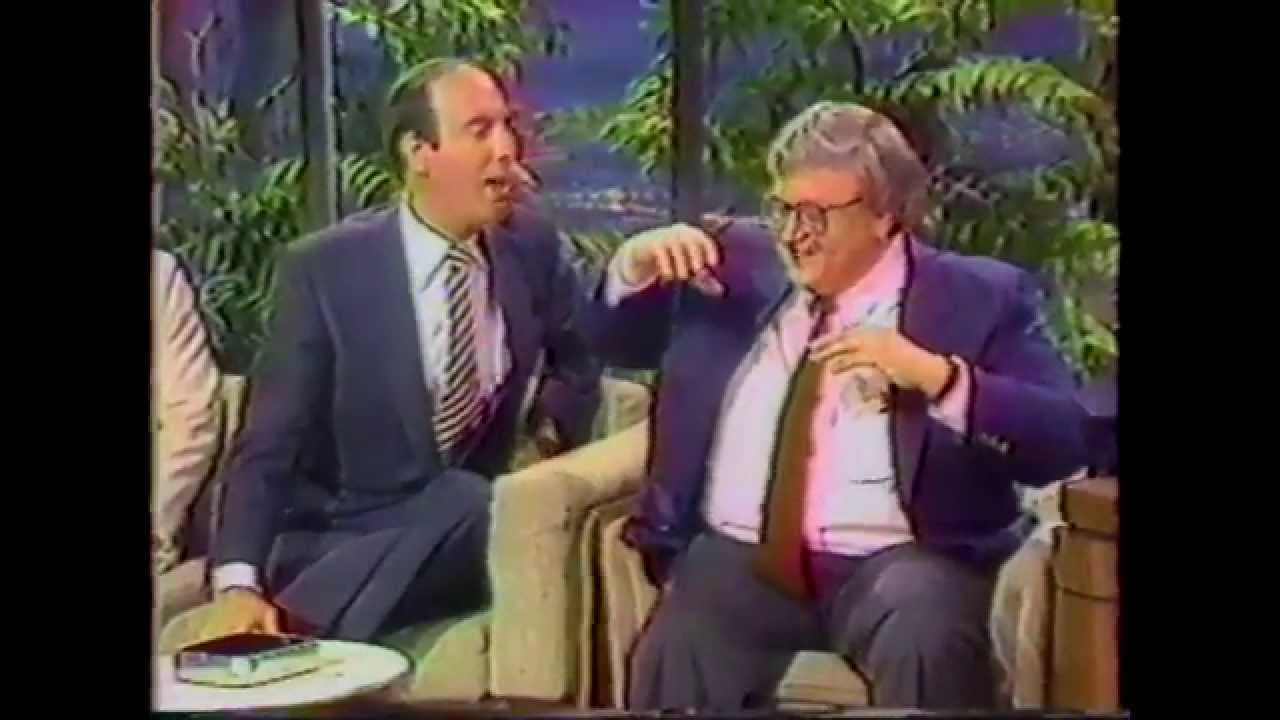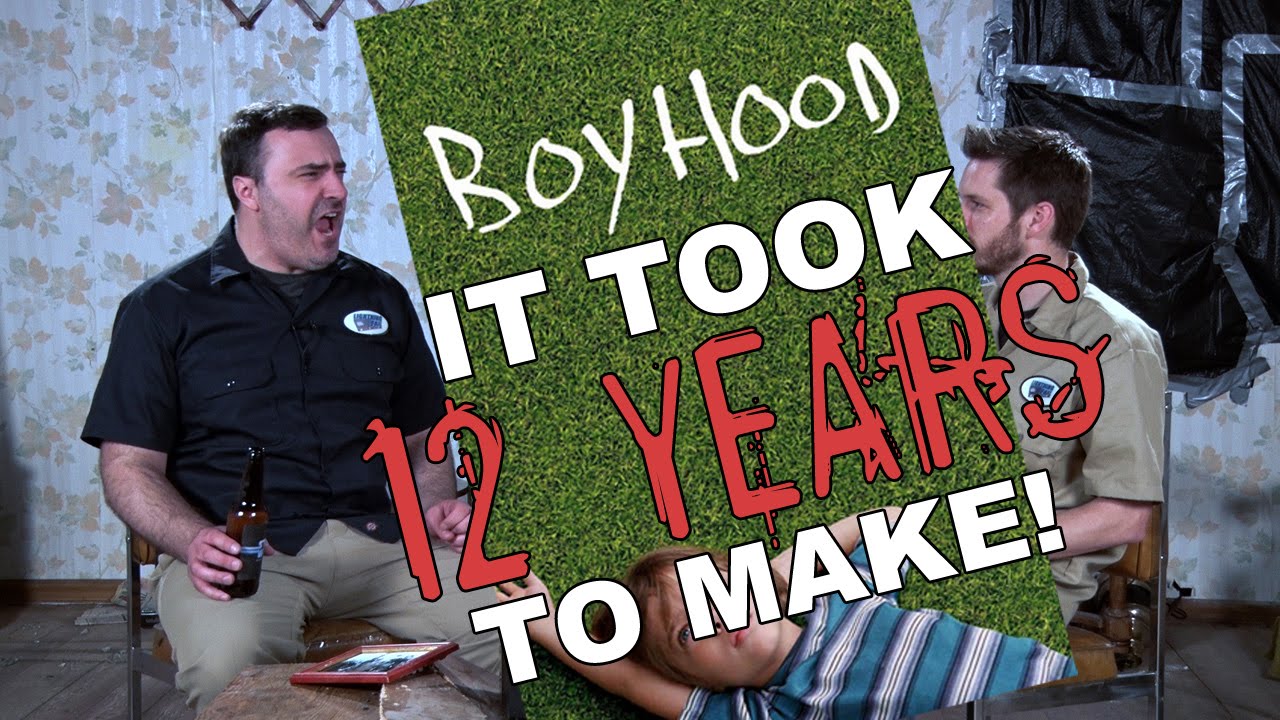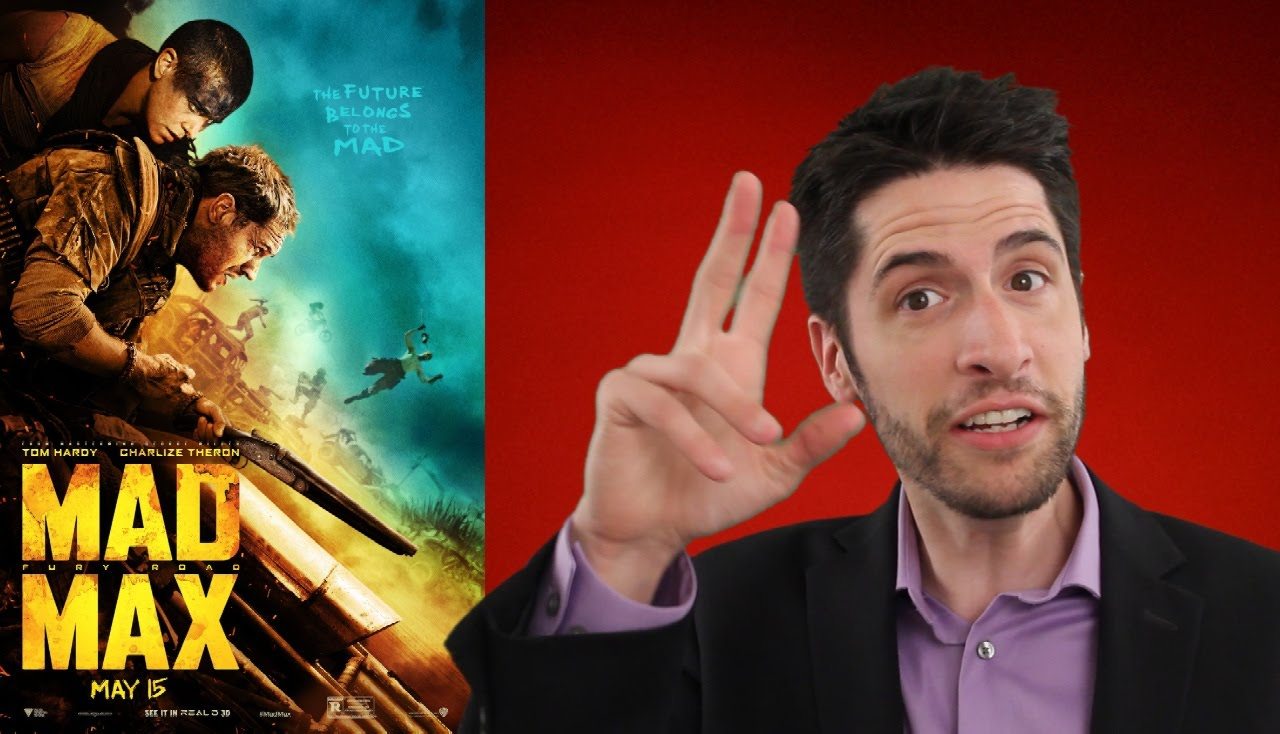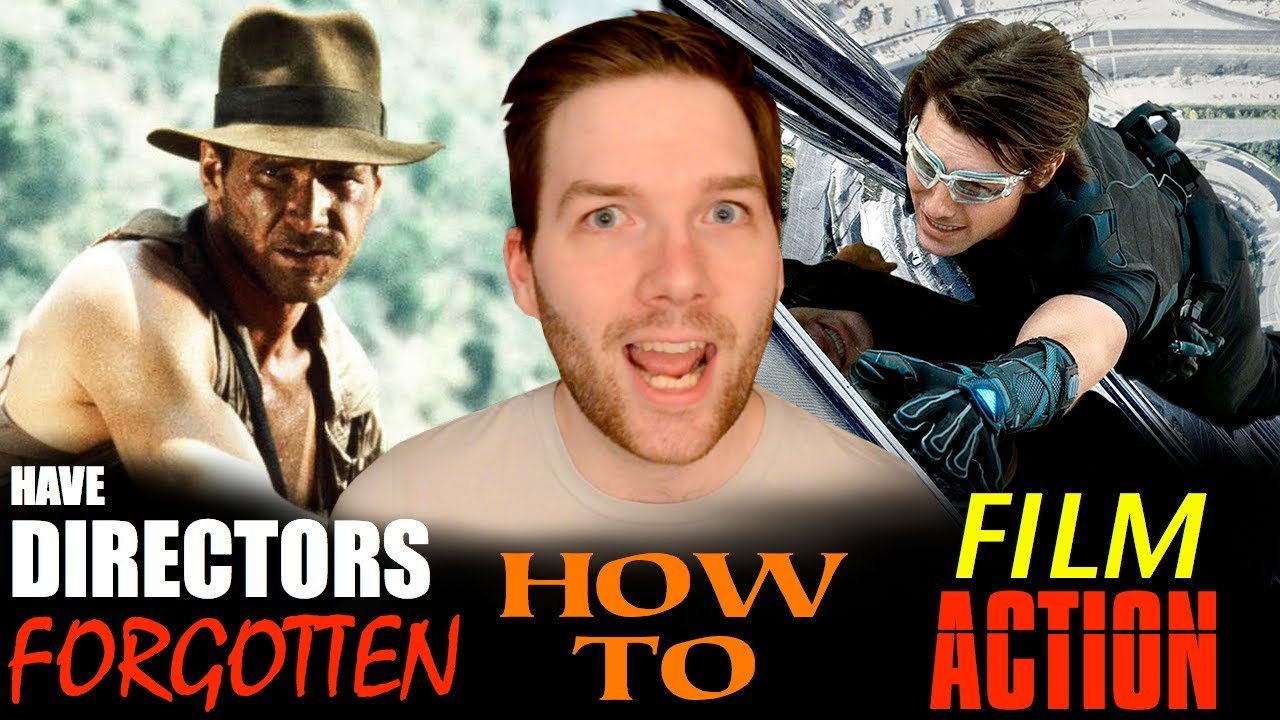
Snark + Sarcasm = what’s you’re about to read. This week: It turns out no one should be a film critic unless they’re like every other critic.
This is a tough Snarcasm to write because I agree with a lot of what Will Mann has to say about how film criticism has changed over the last decade. We just arrive at completely different conclusions because…well, you’ll see.
Writing for Medium, which was made to be longform Twitter, Will Mann writes:
Why I Miss Roger Ebert
Yeah, I miss him, too. He was a legendary—
-OR-
Uh oh.
(Youtube) Video Killed the (Film Criticism) Star
But the song is “Video Killed the Radio Star.” So shouldn’t “Film Criticism” at least be outside its parentheses? I don’t understand this reference, but that’s OK.
Will Mann begins his piece with a loving look back at Roger Ebert, one of the greatest film critics of all time, who sadly passed away in 2013.
Ebert was the gatekeeper when it came to my interest in cinema. His reviews were easily accessible on the Internet, and I had done my fair share of both Google searches to find out exactly what he said about all of my favorite movies and late-night Youtube binging of old episodes of Siskel and Ebert.

Keep in mind that Mann discovered Roger Ebert’s film criticism via YouTube. That might become irony, soon.
I think if I could explain why I felt such grief at Ebert’s death, it would be because I felt like there was an emptiness, a hole that didn’t used to be there before.
…Go on.
Who would, or even could, replace Ebert?
No one, probably .One of the great things about Ebert was how personal his critiques were. You can’t replicate that experience. This isn’t The Daily Show, after all.
Was film criticism destined to decline in the absence of such an influential figure?
Uh, no.
Roger Ebert was influential, but there are many other still-living critics who are just as good. Some could be better, depending on who you ask. And as long as films are still being made, good film critics will be around to talk about them.
Now, some two and a half years after his death, it looks increasingly like film criticism as we know it, and as Ebert knew it, will change forever.
Well, yeah. Film criticism changes all the time. You know why? Because films change. And the people who watch them change. This shouldn’t be surprising.
Suddenly, with the rise of social media, the old expression “everyone’s a critic” is more truth than fiction at this point.
Everyone has always been a critic. Because everyone who watches a movie is a critic. They may not be a professional film critic or even a particularly influential one, but everyone does, in fact, have an opinion.
Youtube critics, or non-professional film reviewers, have risen to prominence, and with that comes some problems that are worth discussing.
So I’m probably lumped into this category since film criticism isn’t my main profession. I do get paid for it, and I see enough movies a year to be taken seriously, but my medium (get it?) is solely online.
Hyperbole and a certain ineloquence that would make Ebert himself cringe define these online critics.
“A certain ineloquence” should be a safe word. Also, Ebert cringed at many critics, all the time. Including his longtime frenemy, Gene Siskel.
While there are online critics doing some great things in terms of film criticism (there’s even an Online Film Critics Society which hold awards every year), most of the critics I’ll be referring to are not members of the OFCS, nor are their reviews tallied on either Rotten Tomatoes or MetaCritic.
This makes sense because applying to be a part of OFCS, Rotten Tomatoes, and Metacritic is a very difficult process. Even great critics get rejected for the sake of keeping numbers down, and Rotten Tomatoes in particular requires a high average of users visiting your site to justify your inclusion. As they should.
In fact, you can’t even apply for OFCS whenever you want (they only accept applications five months out of the year). So many online film critics don’t bother because they don’t need to, anyway.
They mostly exclusively review genre movies, and turn a blind eye to independent or other smaller, non-genre fare.
I agree with Mann, here. But at the same time, I’d prefer an online critic be honest about the movies they’re knowledgeable about. There’s room in the world for “genre critics” who only focus on movies they have a passion for.
In this era of “clickbait” and easiness of accessibility, there is a feeling like we’re losing something when these online personalities talk about film.
Working for websites who deal with entertainment news, I’ve noticed time and again that reviews almost never bring about “clickbait.” In that the headline promoting the article is misleading or written in a way to create shock value. Because reviews don’t bring about clicks quite as much as celebrity gossip, so they’re typically left to the machinations of SEO.
Once in a while, a movie like Fantastic Four will bring about some clickbait headlines catering to the “fanboys” who obsess over studio rights like it’s celebrity gossip. But most of the time, reviews survive because the critic slowly builds a dedicated following.
Critics used to be gatekeepers, an indicator, a gauge as to whether or not a movie was worth investing time and money into.
Good thing they still are.
Now, with fervent fanbases that resemble cults and a relative inexperience in the field of film criticism, these online critics are changing the way movies are reviewed, and not in a way that’s positive, nor in a way Ebert would’ve wanted.
The premise is the problem, here. Mann is arguing that because some bad film critics give bad reviews, it’s negating any of the good reviews that come out all the time. He even manages to lump “fanboys” into a cult to get his emotional point across, then pretends to know what Ebert would have wanted.
This is a weak argument. Relative inexperience is natural, as everyone has to start somewhere. Snarcasm has certainly taught me that, as I mainly read through scores of reviews that are painful to read. But I don’t call them out just because a review is bad. I only review a review if they truly deserve it (i.e. when they attack other critics for having a different opinion).
Also, it’s important to mention that yes, online critics are changing the way movies are reviewed for some. But to say that’s it not positive because it’s different is certainly troubling. Critics before Ebert lambasted him for having a TV show and hated his review style. I’m sure someone back then said he was changing the way movies were reviewed, and not in a positive way.
Take, for example the case of Boyhood. In summer of 2014, Richard Linklater Boyhood came out, earning a 98% Rotten Tomatoes score and many critics from all across the country proclaiming it to be a landmark, groundbreaking film.
A lot of online critics loved it, too. Myself included. I even included it in my Top 10 of 2014 list.
But as you no doubt guessed, Mann cherry picked one of the few “online personalities” who didn’t like it to prove his point.
Shortly after the film debuted, Half in the Bag, an online movie-review-show from RedLetterMedia, reviewed Boyhood, with both hosts, Jay Bauman and Mike Stoklasa coming out overwhelming against the film. They said things like, and I am quoting directly from their review, that Boyhood “sucked,” “sucked so bad,”

What’s interesting is that Mann is citing a comedy website as a representation for all online critics, here. If you’ve watched any of the RedLetterMedia videos, you know that most of what they do is satire laced with their true opinions. Yeah, they didn’t like it. But their show isn’t about artful critiques.
In fact, they’re famous for reviews of older movies that provide new insight into why we liked or disliked them, including Plinkett’s legendary takedown of Star Wars: The Phantom Menace.
Still, if you really want a more nuanced opinion about Boyhood that isn’t positive, you can certainly find it.
Rather than admitting they might have gone overboard in their dislike, they followed up with a video where they made fun of what they viewed as the overwhelmingly positive reception of the film
Because they’re a comedy…ah, never mind.
It used to be that the purpose of having two critics discuss movies is that they could disagree with one another,
I’ve seen my fair share of Half in the Bag, and I can assure you that they don’t always agree (Jurassic World, for example). But since you’re treating this one review like their gospel…
Debate between two movie critics can be informative, for them and for us, the viewer. In contrast, Stoklasa and Bauman only reinforce each other’s worldview.
Yes, for this one movie you picked. Why are we still talking about this?
Moreover, all the attention they gave towards what I’m calling a “hate campaign” against a film that is so well respected by industry insiders, critics, and seemingly the general public (with the exception of RedLetterMedia’s fans, apparently) over actually-bad films that deserve scrutiny is truly baffling.
That’s the point. They don’t think the movie deserves the praise it’s getting because it doesn’t stand on its own (in their opinion) when the gimmick is removed.
Mann goes on to compare this Half in the Bag review with a review by Ebert, who also hated a film once. The point is that Ebert is a better critic…and?
Again, we’re still fixating on this one review. Proving that one critic is better than another doesn’t shed light on anything besides itself.
Compare Ebert’s exquisite insight on Contact to popular Youtube film-reviewer Jeremy Jahn’s perspective on a film he was very fond of, 2015’s Mad Max: Fury Road:

Seriously? You’re going to compare a 1997 review about a science fiction drama with a George Miller action movie from this year? This doesn’t prove anything except that Mann is impatient when it comes to Google results.
I’ll admit that I’m not a fan of Jeremy Jahns, probably for the same reasons as Mann. The difference is that I don’t blame him for the decline of an entire industry. Or even the medium he’s delivering on.
Jahns, on top of other prominent critics like RedLetterMedia, YourMovieSucks, Chris Stuckman, etc. utilize simplistic language and quick edits to get their point across.
First of all, no.
Chris Stuckmann in particular is a fantastic film critic, certainly more credible than anyone else on that list. And the guy is only in his mid-20s. Lumping him in with YourMovieSucks is almost criminal in my opinion.
Second of all, what?
Since when was simplistic language a bad thing? Or quick edits? Would you rather bore people and make your reviews less accessible? Why is it wrong to add entertainment value to a video review? It’s essentially the same as Siskel and Ebert using their friction to drum up some dramatic passion that kept people returning.
Most of the time, the reviews of these Youtube critics boil down to the most basic levels of “this was good, this was bad, this could’ve been better” rather than tackling the film as a whole the way Ebert used to.
So because they don’t review like Ebert, they’re…basic? I find this weird because a good review should essentially boil down to talking about what you like. There are other ways to do it, but many professional critics do the same thing you’re criticizing online film critics of doing.
Youtube critics almost always use a mix of hyperbole and language intentionally dumbed down for your everyday layman in order to get their points across.
In a way, Mann is correct. I would add that professional critics are also guilty of doing this in order to draw in readers.
But he doesn’t seem to understand that this isn’t inherently bad. He seems to think that everyone is looking for the same type of film review backed up by the same type of people who run organizations that promote a certain type of review.

He, and other critics, understand that many people simply want to view an emotional response to a movie. They don’t want to know all of the nuts and bolts in the same way other critics like Ebert liked to talk about. They just want to know if these critics liked the movie.
YouTube reviews have skyrocketed in popularity for the same reason we loved Siskel and Ebert. Because we were able to visibly see the emotional reactions displayed by these film critics. Their emotional responses were much more memorable than some of the smaller details these guys would talk about, not that one thing is better than the other.
The beauty is that you can watch these reviews and go deeper if you choose to. You can hear some of Stuckmann’s rants about how excellent Deakins’ cinematography is, realize you love learning about that aspect of filmmaking, and then seek out other critics who note these nuances.
And I haven’t even mentioned Nostalgia Critic, arguably the best online video critic, who received praise from Roger Ebert himself for his show.

So, no, YouTube isn’t killing film criticism. It’s enabling more people to dive deeper into the medium. You’ll come across inexperienced film critics all the time, but your reaction shouldn’t be to silence them because they aren’t as good as the legends. Someday, they might be ready to take on that level of influence.
But, with Ebert gone, who would the young me choose to listen to if he was coming of age today?
The first step is accepting that Ebert can’t be replicated, much like I’ll never get to watch Movie Mob again. You can only connect with something new. It doesn’t have to be a YouTube film critic you can’t relate to. But it can certainly be someone more aligned with your tastes.
I, for example, get my fix from a recent show called “Film Club” on AV Club. In this video series, A.A. Dowd and Ignatity Vishnevetsky critique films in a format similar to Siskel and Ebert, and their condensed half-hour conversations can be just as insightful. I won’t try to convince anyone it’s better, but it’s certainly worthwhile.
Remember, all these Youtube film critics are just as, if not more, accessible to young viewers as those Ebert reviews were to me. Young viewers, who are just coming into their own cinematic tastes. They, like I was towards Ebert, might be susceptible to older, more experiences voices, and align their tastes with these tastemakers. Does that mean that there are young film fans out there today who will never see a Richard Linklater film because RedLetterMedia told them to? Or that there is a young fan who will avoid anything out of the hyper-masculine genres of superhero films, action films, and horror films simply because Jeremy Jahns doesn’t look as excited when he reviews a drama than when he reviews the latest Marvel movie?
These are questions we need to ask ourselves.
And here’s the answer. The person who won’t watch Boyhood because one comedy website told him not to probably isn’t the type of person who’d find value from an Ebert review. The person who watches Jeremy Jahns to enjoy someone else’s opinion on a genre he loves isn’t there for an insightful critique. He just wants to find out what his friend thinks about the latest Marvel movie.
But the people who love all types of film have little to worry about. Because we have more choices than ever, and a lot of them are worth our time.
I’m Jon and thanks for reading this. You can subscribe to my posts by clicking “Follow” in the right sidebar. Or just say hey on Twitter! @JonNegroni

He said so much bull about Jeremy jahns. For example , his favorite movie of last year wasn’t a super hero movie or anything like that , it was a small budget drama called whiplash. He reviews movies for the average movie goer though , not for quote on quote “film lovers”. But he himself is a film lover and he does like movies outside your average big budget films , again his favorite movie of last year had a budget of 3 million dollars.
Thanks for bringing this up. I’ve tried to watch Jahns before, but his review style just isn’t for me. From what I can tell, though, he certainly doesn’t seem like a brainless fanboy.
Reblogged this on wwwpalfitness.
Just checked out Film Club, and it’s stellar! Like you said, it’s no At the Movies, but the critics in it are fun to watch.
Who do you think you are? I wrote this and you stole it
My favorite film critiques are Stuckmann and Negroni!
Great post, Jon! I’m loving this series! But… I’m still wondering… are you ever going to start making YouTube videos? They’d be great! But it’s okay if you prefer blogging. You’re awesome anyway.
You lost me when you said the Nostalgia Critic is the best online critic, when he is the complete opposite
Unfamiliar with Mann, but I think I can safely say, “pompous ass” would be a good description. Our apologies Mr. Mann for the audacity of the unwashed masses to have opinions on the apparently imponderable (unless you have proper education and training, of course) Art of Film.
I agree we should all be wringing our hands over the fact that we will be driven like cattle with cattle prods to watch certain films and completely ignore others because we watch a film critic on you tube.
The only answer, of course, is to completely shut down you tube and only be allowed to read film reviews done by those who have been approved to do them by a twelve member panel of former reviewers, none under the age of 65.
You think Stuckmann is a good critic, your opinion is thus..invalid.
There goes my smile.
How can any YT critic be taken seriously when pretty much all of them say the exact same thing? Every time a movie comes out it’s like they’re all reading off the same script. At least with SIskel and Ebert, and then later Ebert and Roper you got some variety. They didn’t always agree, which made it seem like you were listening to real people give you their real opinion on the quality of a movie. Compare that with nowadays and almost all critics sound like a broken record. I always check out reviews after I’ve seen a movie because I like knowing whether or not my opinion matches the general consensus of the masses, and it almost never does. YT critics often throw out the same phrases seemingly to make it sound like they actually know what they’re talking about, even when what they’re saying in no way pertains to what actually happened in the movie. How anyone could take them seriously as film critics is beyond me. Next time a popular movie comes out watch a few reviews on YT and you’ll see what I’m talking about.
in what world is nostalgia critic a good critic LMAOOO
Basic rule of thumb for Dunning Kruger Syndrome. If your opponents use phrases like LMAOOO or make statements more geared towards groupthink and humiliation rather than coherent arguments, it only makes the person they are attacking more intellectual because their detractors do not make arguments.
In what world is Albert Einstein a good scientist? LMAAOOOOO See how I just sucked out my credibility?